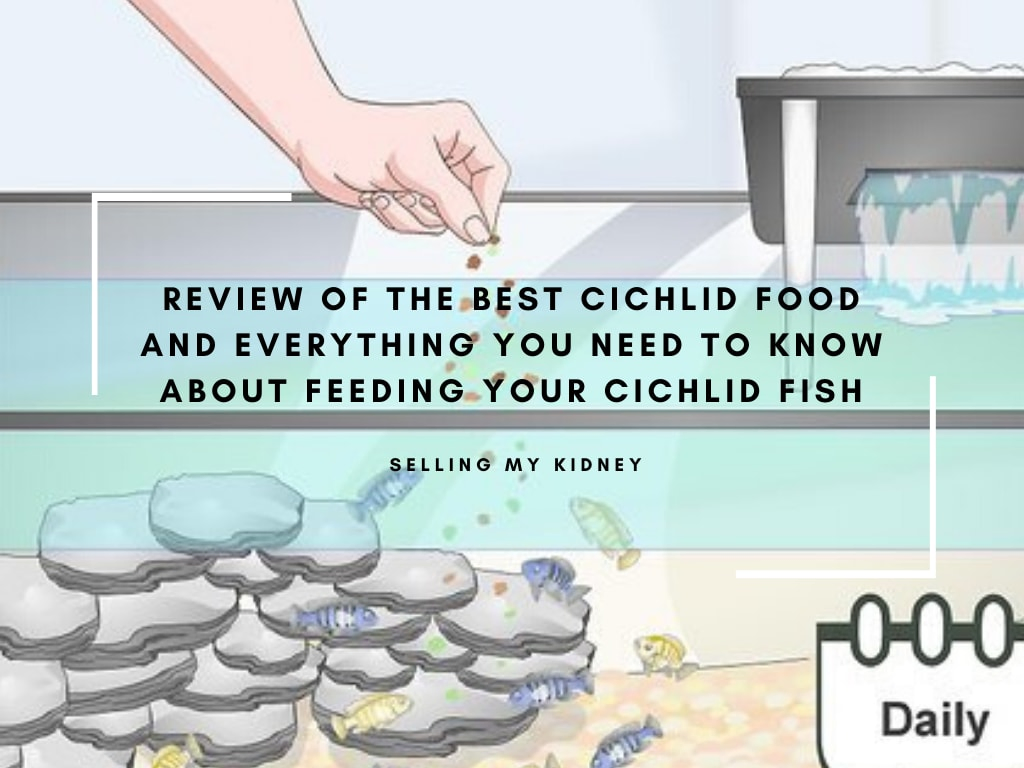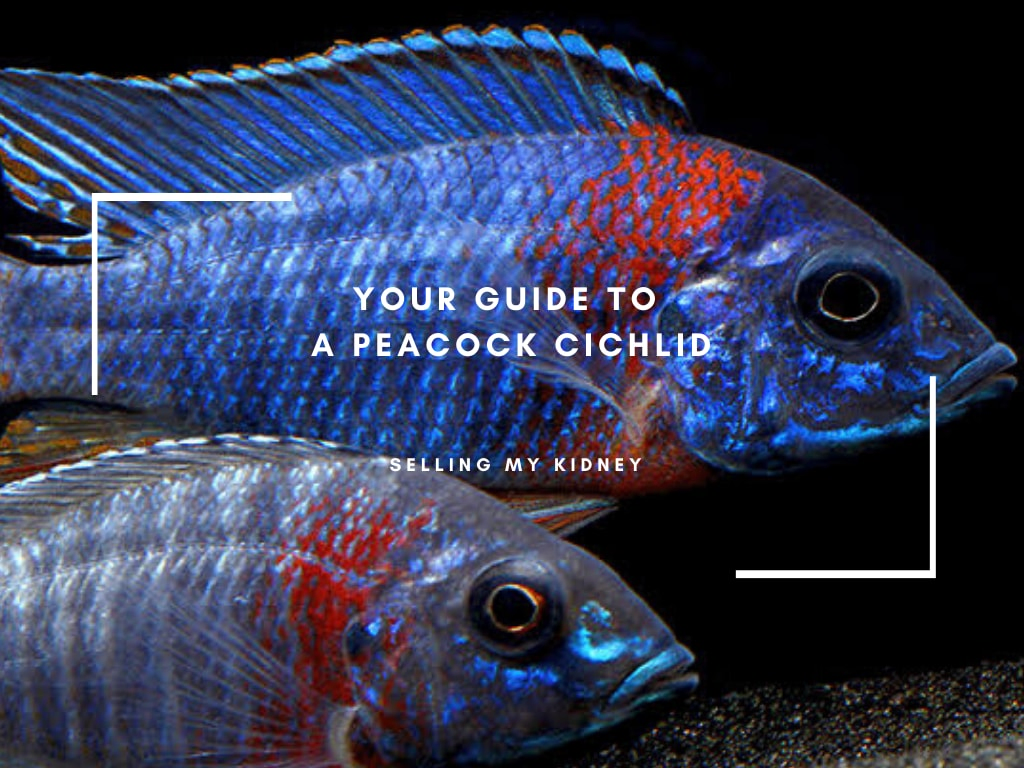Cichlid fish are popular in aquariums and can live long lives in captivity.
On average, cichlids survive between 5-10 years when kept properly!
That can be done With the right care – such as regular water changes, proper dieting, and tank maintenance. These beautiful creatures could reach up to 15 years of age or more!
Caring for your Cichlid is essential; some tips include:
- providing plenty of hiding places (such as rocks),
- keeping their environment clean by removing uneaten food promptly after feeding time,
- and avoiding overcrowded tanks with too many other species present at once.
Additionally, it’s important to keep an eye on pH levels within the tank so that your pet has optimal living conditions.
All this effort pays off, though – having a healthy, happy fish around brings joy into any home!
Are Cichlids Hard To Keep?
Cichlids are a popular type of fish to keep in aquariums.
They come in many different shapes, sizes, and colors, making them an attractive addition to any tank.
But how hard is it really to care for cichlids?
The answer depends on the species you choose!
Some types require more attention than others; however, they can be relatively easy pets if their needs are met properly.
Here’s what you need to know:
- Water Quality – Cichlids prefer clean water with good filtration systems that regularly remove environmental toxins. Regular partial water changes should also be done every two weeks, depending on your specific setup and stocking levels (number of fish).
- Diet – Most cichlid varieties will accept flake and frozen/live foods such as brine shrimp and bloodworms. But some may have special dietary requirements like vegetable matter or live plants, which must be provided accordingly.
- Tank Size & Setup – Depending upon the size of your chosen varieties, tanks should range between 20-50 gallons minimum per adult specimen when kept singly or in pairs. Larger groups would obviously require even bigger setups due to their social nature amongst conspecifics (same species) within these environments.
- Additionally, substrate choice matters too since certain substrates provide better buffering capabilities against pH swings while other materials offer aesthetic appeal only without much practical use otherwise…so research carefully before deciding here!
- Compatibility – Compatibility plays a huge role when keeping multiple specimens together because not all fishes get along peacefully despite being the same genus/species. For example, African rift lake inhabitants tend towards aggression. In contrast, South American counterparts usually remain peaceful unless provoked by another individual first….
It’s best practice to do thorough research beforehand regarding each particular groupings behavior before introducing it into one’s own system. To ensure success long term basis!
What Is The Life Span Of The Most Popular Cichlids In An Aquarium?
The most popular cichlids in an aquarium have a wide range of life spans.
Some species can live up to 10 years, while others may only survive for 2-3 years.
Examples include:
- Angelfish – 5-10 Years
- Discus Fish – 8-12 Years
- Oscar Cichlid – 7–15+Years
- Jack Dempsey Cichlid – 6–8+Years
It is important to note that the lifespan of any fish will depend on its environment and care.
Suppose it has good water quality, plenty of space, and appropriate food. In that case, it will likely live longer than those in poor conditions or overcrowded tanks!
Factors such as stress levels from other tank mates also play a role, so be sure not to overstock your aquarium with too many different types of fish.
Additionally, regular maintenance like weekly water changes should help keep them healthy throughout their lifetime!
How Long Do Cichlids Take To Grow?
Cichlids are a type of fish that can grow to be quite large.
Depending on their species and environment, they take anywhere from 6 months to 3 years.
Generally speaking, cichlids will reach their full size within 1-2 years if given proper care and nutrition.
The growth rate for each individual Cichlid is determined by several factors:
- Size and Species – Some larger species may take longer than smaller ones; some types of African Cichlids (such as Mbuna) tend to mature faster than other varieties like South American or Central American Cichlids
- Environment – The water temperature, pH levels, and quality of food provided all play an important role in how quickly your Cichlid grows
- Genetics – Each individual has its own genetic makeup, which affects its overall development speed
In addition to these environmental conditions, you can also do certain things at home, such as providing them with high-quality foods rich in proteins and vitamins.
Hence, they get enough nutrients needed for healthy growth.
You should also make sure not to overcrowd the tank since this could lead to stress among fish resulting slower maturation process due lack of competitive resources available inside the aquarium.
Lastly, it’s always a good idea to keep track of any changes around the tank and monitor every inhabitant’s health status to ensure everything runs smoothly!
How To Extend The Life Span Of Your Cichlid?
Cichlids are popular fish that can live for many years if cared for properly.
Here’s how to extend the life span of your Cichlid:
- Provide clean, filtered water with regular partial water changes;
- Feed them high-quality food, such as flakes or pellets specifically designed for cichlids;
- Keep their tank temperature between 75 and 80 degrees Fahrenheit (24 – 27 Celsius);
- Make sure they have plenty of hiding places in the aquarium, like rocks, plants, and driftwood; 5) Avoid overcrowding by providing enough space per fish – at least 10 gallons per adult Cichlid is recommended; 6 ) Regularly check on your child’s health using an ammonia test kit to make sure there isn’t too much waste buildup in its environment.
- With these tips, you should be able to keep your beloved pet healthy and happy!
Role Of Water Parameters For Cichlids In An Aquarium?
Water parameters are essential for cichlids in an aquarium.
They must be monitored and adjusted regularly, as they can hugely impact your fish’s health.
Here is what you should consider:
- pH – This measures how acidic or alkaline the water is; it needs to stay between 6-8 (ideally 7) so that your fish don’t become stressed by sudden environmental changes.
- Temperature – Cichlids prefer temperatures around 75°F, but this may vary depending on species; make sure not to let it get too hot!
- Ammonia & Nitrite Levels – These two chemicals must remain at 0 ppm (parts per million). If levels rise above this, your stock could have serious consequences such as death or disease.
- Hardness/Alkalinity – The hardness level should range from 5-15 dH, while alkalinity should sit somewhere between 3-10dKH. These factors help maintain stability within the tank which will benefit all its inhabitants, including cichlids!
Do Cichlid Fish Get Lonely?
Cichlid fish are social creatures, so they can get lonely.
They need companionship and interaction with other cichlids to stay healthy and happy.
If a single cichlid lives alone without any tank mates, it can become stressed or depressed due to the lack of stimulation from its peers.
Here are some signs that your Cichlid may be feeling lonely:
- Reduced appetite
- Lethargic behavior
- Unusual aggression towards its reflection in the glass
If you notice these behaviors, it’s time to add more friends to your pet’s aquarium!
It is recommended that at least two or three same species live together.
This will provide plenty of playtime activities, such as chasing each other around the tank and digging up substrate material like sand/gravel.
Displaying territoriality by defending certain areas within an enclosure against intruders (other fishes).
Having multiple individuals also helps reduce stress levels since there won’t be just one individual constantly being picked on by others.
Instead, everyone gets equal attention, which leads to a happier life overall!
Final Thoughts: How Long Do Cichlid Fish Live In An Aquarium?
Cichlid fish are a popular choice for aquariums, and they can live up to 10 years in captivity.
They require regular maintenance, such as water changes, proper filtration systems, and the right diet.
With good care, cichlids will thrive in an aquarium environment!
In conclusion, with adequate attention given to their needs – including:
- cleanliness of tank conditions;
- appropriate temperature levels;
- quality food sources;
- plenty of hiding places
These beautiful creatures can bring joy into your home for many years!



